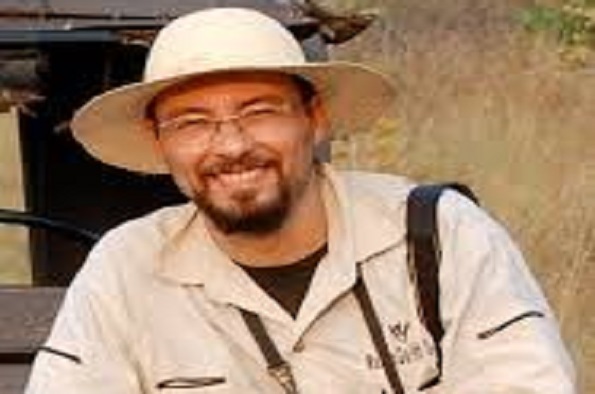
Defaunation in the Anthropocene
- Cristina Garcia-Perez
- Suitable for: Staff/students with an interest in Ecology, Evolution and Behaviour
- Admission: Free
Add this event to my calendar
Click on "Create a calendar file" and your browser will download a .ics file for this event.
Microsoft Outlook: Download the file, double-click it to open it in Outlook, then click on "Save & Close" to save it to your calendar. If that doesn't work go into Outlook, click on the File tab, then on Open & Export, then Open Calendar. Select your .ics file then click on "Save & Close".
Google Calendar: download the file, then go into your calendar. On the left where it says "Other calendars" click on the arrow icon and then click on Import calendar. Click on Browse and select the .ics file, then click on Import.
Apple Calendar: The file may open automatically with an option to save it to your calendar. If not, download the file, then you can either drag it to Calendar or import the file by going to File >Import > Import and choosing the .ics file.
We are living in a new geologic era where humans are modifying species distributions, their ecology, and evolution at an unprecedented rate. What are the evolutionary consequences of losing key animal mutualists? How does defaunation affect plant species diversity and ultimately erode carbon storage in tropical forests? This lecture is based on a series of natural history observations linked to field experiments to understand the myriad consequences of defaunation on evolution, ecology, and ultimately ecosystem function.
Prof. Mauro Galetti got his PhD from the University of Cambridge, UK and joined São Paulo State University in Brazil in 1999. His research seeks to answer how species or population loss affect key ecological processes such as predation, herbivory, mutualism and competition. What are the ecological and evolutionary consequences of defaunation? What was the ecological and evolutionary legacy of Pleistocene megafauna extinction? Do invasive species replace the ecological services of native species? Dr. Galetti studies these issues in tropical ecosystems in Brazil, using approaches raging from field observations to experiments and stable isotopes to genetic analyses. He is responsible for running one of the longest large-scale experiments on defaunation in Neotropical forests where he is evaluating the consequences of the extinction of large mammals on multiple taxa (rodents, fungi, plants), and how these changes erode the carbon storage in tropical forests. He has worked in tropical ecosystems across the globe (Borneo, Atlantic forest, Cerrado, Pantanal, Amazon). He also is curator of the largest dataset on tropical biodiversity for a single biome: the Atlantic forest Initiative. Dr. Galetti has published +200 peer-reviewed articles.
We are living in a new geologic era where humans are modifying species distributions, their ecology, and evolution at an unprecedented rate. What are the evolutionary consequences of losing key animal mutualists? How does defaunation affect plant species diversity and ultimately erode carbon storage in tropical forests? This lecture is based on a series of natural history observations linked to field experiments to understand the myriad consequences of defaunation on evolution, ecology, and ultimately ecosystem function.
Prof. Mauro Galetti got his PhD from the University of Cambridge, UK and joined São Paulo State University in Brazil in 1999. His research seeks to answer how species or population loss affect key ecological processes such as predation, herbivory, mutualism and competition. What are the ecological and evolutionary consequences of defaunation? What was the ecological and evolutionary legacy of Pleistocene megafauna extinction? Do invasive species replace the ecological services of native species? Dr. Galetti studies these issues in tropical ecosystems in Brazil, using approaches raging from field observations to experiments and stable isotopes to genetic analyses. He is responsible for running one of the longest large-scale experiments on defaunation in Neotropical forests where he is evaluating the consequences of the extinction of large mammals on multiple taxa (rodents, fungi, plants), and how these changes erode the carbon storage in tropical forests. He has worked in tropical ecosystems across the globe (Borneo, Atlantic forest, Cerrado, Pantanal, Amazon). He also is curator of the largest dataset on tropical biodiversity for a single biome: the Atlantic forest Initiative. Dr. Galetti has published +200 peer-reviewed articles.
